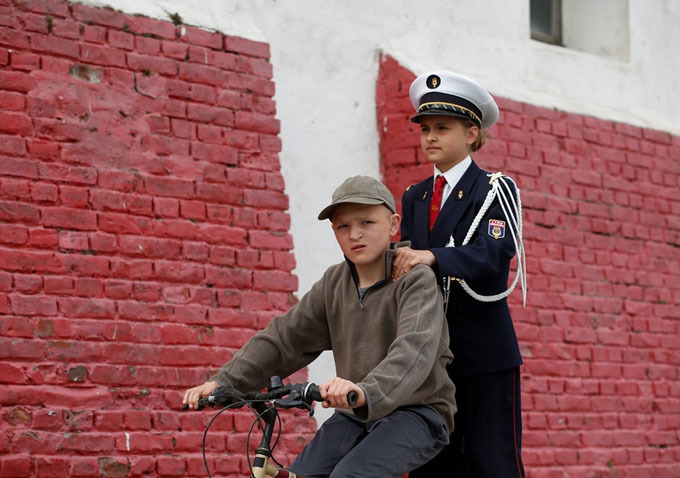
Last May with the announcement of Bruno Dumont’s television debut, I wrote an article outlining accessibility issues when it comes to International television. With television becoming as increasingly artistically rich medium, demands for accessibility to international content is in greater demand. Certain shows have broken the threshold, most obviously those from the UK that found greater audiences thanks to distribution platforms like Netflix. The French series Les Revenants, which first premiered on Canal+ in France in 2012, has found international success in the UK and the United States. Available in its original language through Netflix, on Channel 4 in the UK and on America’s Sundance Channel, it is now being adapted for American television by showrunners Carlton Cuse (Lost) and Raelle Tucker (True Blood) for A&E.
French filmmaker Bruno Dumont’s new series P’tit Quinquin is high on the list of international television productions worth checking out this year. Though the official synopsis seemed right up Dumont’s alley, describing a small-time investigation of a series of murders, the trailer offers a darkly absurdist comedy that can only be said to be tangibly present in his previous work. Though much remains to be seen regarding the overall form and tone of the show it offers the promise of an international audience that is not yet expected from non-English language programming (at least within the English speaking world).

P’tit Quinquin will also run as part of the Cannes Director’s Fortnight, becoming part of an increasingly large group of series to make their appearances at film festivals. Over the next few years it will be interesting to see in which ways television and cinema redefine themselves in relation to each other. With new avenues for production and distribution consistently available, the idea of TV-series actually being tied down to a Television set and the regulations and limits of limited airways is quickly becoming an idea of the past. Though it is difficult to deny at this point the high caliber artistry available through Television, the question of separating the mediums is becoming increasingly complex. The French have long been keen to dissolve the differences between them, championing the artistry of Twin Peaks over two decades ago and a sneak peak at the final year critics list at Cahiers du Cinema sees as many listing for series like Mad Men and Louis as any critic darling of the year.
France remains a relative anomaly in terms of international distribution as there is a large French speaking market world-wide that continues to rely on the European nation for content, it seems that it was only a matter of time before English speaking countries also became interested in their productions. It is the smaller markets with more regionally specific television that will be the most interesting to watch over the next few years. As Netflix continues to expand internationally and take big risks in terms of distribution and production, it will be interesting to see how and if they support more localized markets. In particular during times of austerity across the world, many markets that are thriving creatively are losing money. Would it be idealistic to believe that companies like Netflix could possibly take the place of certain national funding agencies that are floundering and give artists in television a more powerful and confident voice?
As technology evolves and culture changes, the next few years will likely completely redefine our understanding of television in relation to cinema. While large markets like France, the UK and the United States will likely continue to dominate popular discussion, it is possible that much like in the world of cinema, smaller markets will soon find the possibility to compete. This more hopeful vision of the future may ultimately rest with those handling the money, but audiences still have a voice. While television culture as it stands does rely heavily on the instantaneity of live-tweeting and knee-jerk reactions, perhaps a little patience and a little searching will benefit us all. We should be sharing our experiences and the great television from our regions, even if it takes a little time to catch on. It’s time to fully break away from the trappings of the television set and open our eyes up to a greater world. The TV is dead, long live Television.
– Justine Smith
[vsw id=”ii2BzMaUr3M” source=”youtube” width=”425″ height=”344″ autoplay=”no”]

